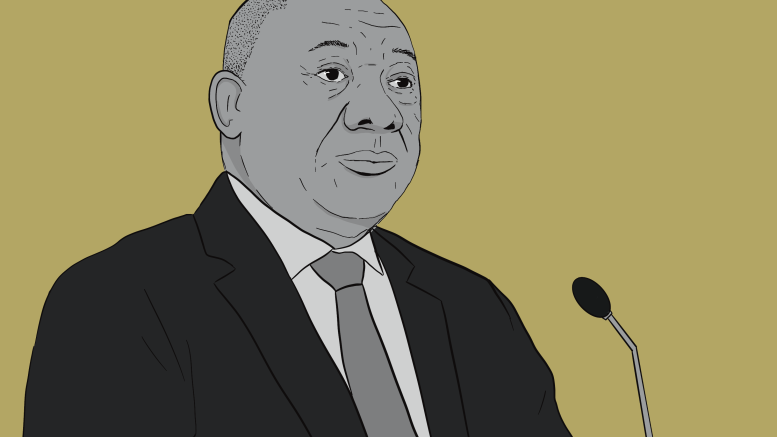I left South Africa a few days before the general elections in 2019. My parents decided that, despite the jubilation within the country, I ought to study abroad because they felt it was the best way to secure my future.
While I hadn’t gained a full understanding of the situation in South Africa at the time, the rise of president Cyril Ramaphosa’s government was just too big to ignore and very much in all our faces.
The first time I felt this way was in church the Sunday after president Jacob Zuma’s resignation. The people in the church sang Ramaphosa’s praises, along with the song that soon became a key slogan for his campaign, “Thuma Mina.” This slogan had been derived from South African jazz legend Hugh Masekela’s song, “Thuma Mina,” which in many ways speaks of servitude.
The literal translation of “thuma mina” to English is “send me.” Nine years of Zuma’s controversial tenure as president of South Africa seemed set for a new era of prosperity under Ramaphosa, post-apartheid president Nelson Mandela’s preferred successor.
Post-Apartheid economy
There is a backstory that sets the mood for the jubilation that followed Ramaphosa’s rise to South African presidency, as well as the disappointment that has engulfed South Africans because of his first term in office. Mandela had advocated for a mixed economy opposed to nationalization, and encouraged foreign investment.
The boom that followed was massive. However, South Africa remained one of the most unequal economies in the world. This world branding as an unequal economy, especially post-apartheid, triggered a political response. In 2009, Ramaphosa’s predecessor, Zuma, was sworn in as the president of South Africa.
He and his faction of the African National Congress (ANC) had a key objective to tackle inequality. They called it Radical Economic Transformation (RET). However, with many allegations of corruption and the appointment of unpopular government ministers, Zuma’s plan ended in a resignation and a commission of inquiry into his tenure as president to investigate corruption.
This commission also led to Zuma’s arrest, owing to his failure to attend when he was summoned. However, the greatest burden that Zuma would leave for his successor isn’t the political and judicial quagmire, but rather an energy crisis that had been passed on to Zuma by his predecessor, Thabo Mbeki, that has only worsened in recent years.
This crisis has seen planned power cuts, known as load shedding, instituted in order to avoid the South African grid collapsing. It is some of these major challenges that have posed a grave threat to Ramaphosa and his administration.
Ramaphosa and the 2024 election
With a stagnating economy that has only been exacerbated by these power cuts, Ramaphosa’s ANC has a long and difficult campaign trail ahead of them. For the first time in 30 years, polls show that the ANC may not be on its way to winning a majority in parliament.
Other polls show that a growing number of South Africans no longer believe in democratic government, instead preferring a benevolent dictator if they are able to get the job done, a chilling reality during a crucial year for democracy in itself. What is more worrying is Ramaphosa’s dismal record as president, which has gained him notoriety among his political rivals.
This failure to manage South Africa will be crucial at the ballot box as various parties have made it their mission to unseat the ANC in May 2024. In fact, the main opposition, the Democratic Alliance, has put together a coalition to make sure the ANC or the left-wing socialist Economic Freedom Fighters (EFF) do not form a majority or coalition government.
The EFF is currently the third largest party in the country. They have promised economic emancipation for South Africa’s Black majority through socialist programming and a land reform that would see land expropriated from white farmers to Black farmers.
At the end of the day, the verdict rests with the South African people. One thing is simply undeniable — 30 years afterward, apartheid South Africa’s political economy is very much on the ballot papers. Addressing bread and butter issues remains the most pressing issue of the day in a country that has already suffered a senseless tyranny prior to its independence.
The world will be watching this election as Africa’s most industrialized economy heads to the polls. As the day draws nearer, I am transported back to 2019 just before I moved to Canada. No one seems to be as excited to go and vote as they were in 2019. There is no more thuma mina.
While we do not know how everything will play out on the day, one thing is for sure — the voters will be taking the economic pain of the last couple of years to the ballot box.



